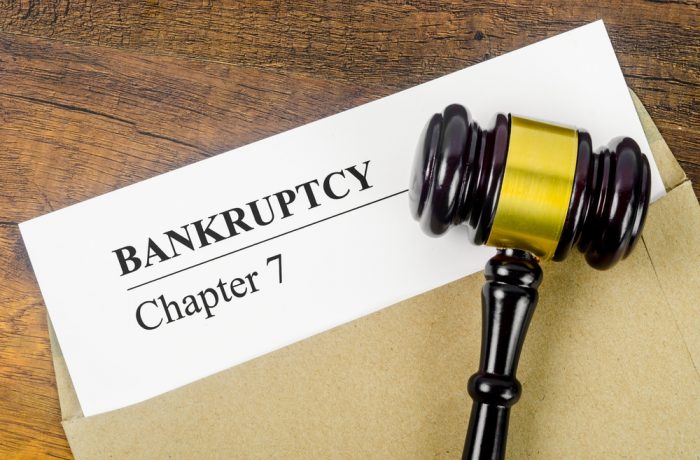If you’re struggling with debt and have judgment liens recorded against your property—like your home or car—there is a way to get rid of those liens through Chapter 7 bankruptcy. This process, known as “lien avoidance,” can help you protect your assets and move towards a fresh financial start. In this article, we’ll explore what judgment liens are, how lien avoidance works in Chapter 7 bankruptcy, and the steps you need to take to eliminate these liens from your property.
What is a Judgment Lien?
A judgment lien is a legal claim on your property by a creditor after they win a lawsuit against you. When a creditor successfully sues you for an unpaid debt, they can obtain a judgment from the court, allowing them to place a lien on your real or personal property. This lien effectively gives the creditor a stake in your property, ensuring they get paid if you sell or refinance it.
Common Properties Affected by Judgment Liens:
- Your home: The lien attaches to your real estate, potentially complicating your ability to sell or refinance.
- Your car: A lien on your vehicle can hinder your ability to sell or trade it.
- Other personal property: This can include bank accounts, stocks, or any valuable personal assets.
Understanding Chapter 7 Bankruptcy and Lien Avoidance
Chapter 7 bankruptcy is designed to help individuals eliminate unsecured debts like credit card balances, medical bills, and personal loans. However, judgment liens are attached to property and are considered secured debts. Fortunately, Chapter 7 offers a tool called lien avoidance to remove these liens under certain conditions.
How Lien Avoidance Works:
- Conditions for Lien Avoidance:
- The lien must impair an exemption to which you are entitled.
- The lien is a result of a court judgment for unsecured debts.
- The lien is attached to property otherwise exempted under bankruptcy law.
Steps to Get Rid of Judgment Liens in Chapter 7 Bankruptcy
- File for Chapter 7 Bankruptcy:
The first step is to file a petition for Chapter 7 bankruptcy. This involves submitting detailed financial information, including all your assets, liabilities, income, and expenses, to the bankruptcy court.
- Determine Your Exemptions:
Under bankruptcy law, you are entitled to certain exemptions that protect a portion of your property from creditors. Common exemptions include the homestead exemption for your primary residence and the vehicle exemption for your car. You need to determine which exemptions apply to your property.
- File a Motion to Avoid Lien:
To remove the judgment lien, you must file a motion to avoid lien with the bankruptcy court. This motion must demonstrate that the lien impairs your ability to claim exemptions on the property in question.
- Impairment Test: The court will evaluate whether the lien impairs your exemptions by comparing the value of your property, the amount of the lien, and your exemption limits.
- Court Hearing:
After filing the motion, the court will schedule a hearing. You’ll present your case at this hearing, showing how the lien interferes with your exemptions. The creditor has the right to challenge your motion, but in many cases, the lien is avoided if you meet the requirements.
- Obtain Court Order to Avoid Lien:
If the court agrees with your motion, they will order you to avoid the lien. This order removes the lien from your property, freeing it from the creditor’s claim.
Benefits of Lien Avoidance in Chapter 7 Bankruptcy
- Protect Your Property: Lien avoidance protects your home, car, and other essential property from creditors.
- Simplify the Sale of Property: Selling or refinancing your property becomes easier without a lien, as you won’t have to deal with satisfying the lien before the transaction.
- Achieve a Fresh Start: Eliminating judgment liens through bankruptcy gives you a clean slate, allowing you to rebuild your financial life without the burden of these secured debts.
Guidance
Getting rid of judgment liens in Chapter 7 bankruptcy through lien avoidance can be critical to securing your financial future. By understanding the process and taking the appropriate legal steps, you can protect your assets and emerge from bankruptcy with a clearer path forward.
If you have judgment liens on your property and are considering bankruptcy, consult with the Bankruptcy Law Firm of Figeroux & Associates. We can guide you through the lien avoidance process and ensure you meet all the requirements to remove these liens effectively.
Remember, while bankruptcy can be a powerful tool for debt relief, it’s essential to approach it with the right information and legal support to maximize its benefits.
Bankruptcy is not the end; it’s a new beginning. Allow yourself to have a fresh start. Contact the Bankruptcy Law Firm of Figeroux & Associates today. Call 855-768-8845 or visit www.askthelawyer.us to book a consultation. The lawyer you hire does make a difference!
#judgment lien #lien avoidance #Chapter7bankruptcy #bankruptcy





